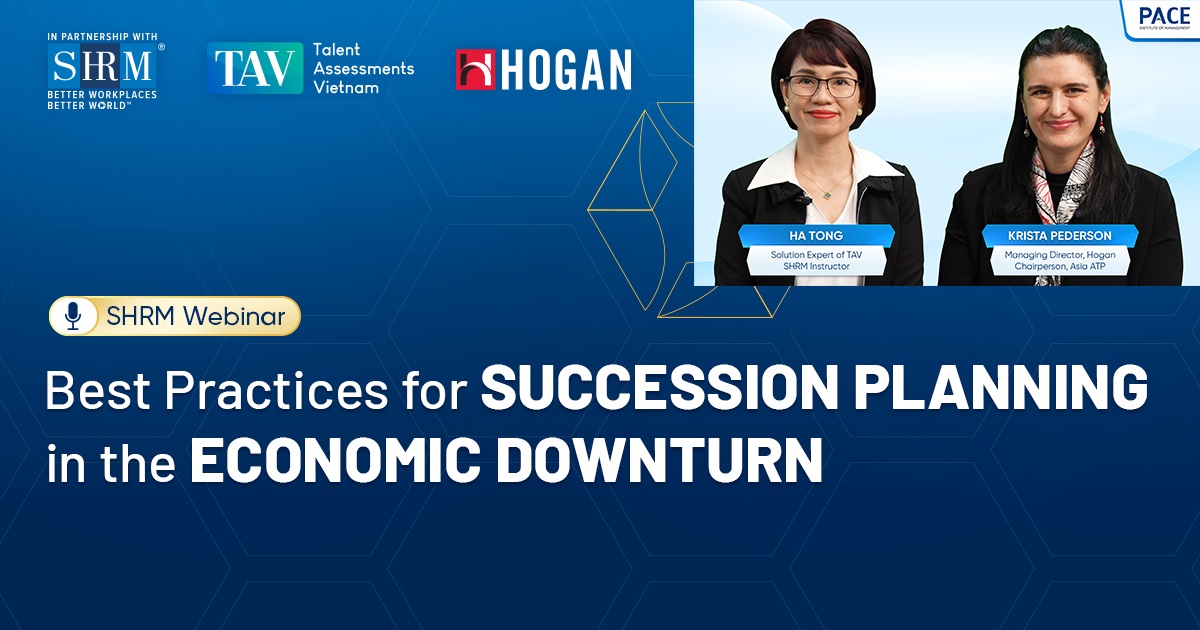The Ups and Downs of Hiring Foreign Workers
Politics has made it harder for employers to identify and hire qualified foreign applicants for open positions, attendees told panelists June 13 during a session at the Council for Global Immigration's 2017 Symposium in Arlington, Va.
In fact, conference attendees said they're seeing "crazy denials" for temporary work visas. Some said they believe it's because of President Donald Trump's tough stance on immigration. The administration's change in approach to processing H 1-B visas has also made it more difficult for employers to accurately forecast their staffing levels, attendees said.
Recruitment Woes
In some situations, employers may need to sponsor foreign nationals for certain jobs if qualified U.S. workers can't be found, according to a panel of immigration experts that included Justin Storch, manager of agency liaison at the Council for Global Immigration, an affiliate of the Society for Human Resource Management; Scott Fitzgerald, a partner in the Boston office of Fragomen, Del Rey, Bernsen & Loewy; and Allyson Gonzalez, an immigration and global mobility expert in international HR for AT&T in Orlando, Fla.
When polled during the symposium session, 63 percent of attendees said their companies have a written sponsorship policy for recruiting and retaining foreign national employees. Sometimes, however, employers will file for visas without bothering to see if their organization even has a policy, Gonzalez said.
Having a policy makes it easier for companies to find foreign talent, the panelists said. With a policy, companies have processes in place to engage with appropriate parties when recruiting and retaining foreign national employees.
Sponsorship includes two categories of work authorization: nonimmigrant temporary work visas, which provide work authorization for a limited time, and permanent residency (also known as green cards).
"When determining whether or not to sponsor applications, the company should consider risks," Gonzalez said. These include "time [to hire], cost [of hire] and qualified candidate pipeline," which means "if you have qualified U.S. workers who are available to do the job, you might not consider a foreign national," especially given Trump's executive order in April.
As SHRM Online reported previously, that order "directs federal agencies to review and propose changes to the H-1B high-skilled guest worker visa program," which creates a preference for American workers over foreign nationals.
There's just one problem: Many highly skilled workers—those with advanced degrees in science, technology, engineering and math (STEM) fields—typically aren't Americans, according to the Integrated Postsecondary Education Data System, an education data collection program of the National Center for Education Statistics.
For example, 54 percent of students who earn doctorates in computer science and information management in the United States are foreign nationals, as are 56 percent of those who earn engineering doctorates in the U.S.
Where are most of these students coming from? China, India, South Korea, Saudi Arabia and Canada, according to data from the Pew Research Center.
Helping foreign nationals with their immigration status isn't cheap.
"It's … quite expensive," Gonzalez said. "Filing an H-1B and the various work visas can be a budgetary constraint. In Great Britain, the cost has increased sevenfold."
Additionally, the time it takes to process a visa may not be feasible for your organization. As for the aforementioned risks, "we're in such a [political] environment that we have to consider what that means if we hire them on a student visa," Gonzalez said, since those visas require additional paperwork and are limited in number. "Will we be able to keep them on an H-1B? What is right for your organization regarding hiring a foreign national is important," she said, adding that HR professionals need to ask themselves if it's preferable to hire U.S. workers.
[SHRM members-only toolkit: Understanding and Obtaining U.S. Employment Visas]
Some Shy Away from Foreign Workers
Fitzgerald said that for the second time in the last year, a client has told him the organization doesn't want to hire foreign talent.
However, he added, "if you're looking for STEM folks, you're probably going to have to source some foreign talent" because most of the students in U.S. graduate programs in electrical engineering or computer programing are foreign nationals.
"One of the things we say to clients is, 'Don't hire foreign nationals unless they have a STEM degree, because you're not going to be able to keep them' " if they haven't gone through the visa process, he said.
Fitzgerald recommended recruiters ask hiring managers these questions when looking to fill a high-skilled position:
In fact, conference attendees said they're seeing "crazy denials" for temporary work visas. Some said they believe it's because of President Donald Trump's tough stance on immigration. The administration's change in approach to processing H 1-B visas has also made it more difficult for employers to accurately forecast their staffing levels, attendees said.
Recruitment Woes
In some situations, employers may need to sponsor foreign nationals for certain jobs if qualified U.S. workers can't be found, according to a panel of immigration experts that included Justin Storch, manager of agency liaison at the Council for Global Immigration, an affiliate of the Society for Human Resource Management; Scott Fitzgerald, a partner in the Boston office of Fragomen, Del Rey, Bernsen & Loewy; and Allyson Gonzalez, an immigration and global mobility expert in international HR for AT&T in Orlando, Fla.
When polled during the symposium session, 63 percent of attendees said their companies have a written sponsorship policy for recruiting and retaining foreign national employees. Sometimes, however, employers will file for visas without bothering to see if their organization even has a policy, Gonzalez said.
Having a policy makes it easier for companies to find foreign talent, the panelists said. With a policy, companies have processes in place to engage with appropriate parties when recruiting and retaining foreign national employees.
Sponsorship includes two categories of work authorization: nonimmigrant temporary work visas, which provide work authorization for a limited time, and permanent residency (also known as green cards).
"When determining whether or not to sponsor applications, the company should consider risks," Gonzalez said. These include "time [to hire], cost [of hire] and qualified candidate pipeline," which means "if you have qualified U.S. workers who are available to do the job, you might not consider a foreign national," especially given Trump's executive order in April.
As SHRM Online reported previously, that order "directs federal agencies to review and propose changes to the H-1B high-skilled guest worker visa program," which creates a preference for American workers over foreign nationals.
For example, 54 percent of students who earn doctorates in computer science and information management in the United States are foreign nationals, as are 56 percent of those who earn engineering doctorates in the U.S.
Where are most of these students coming from? China, India, South Korea, Saudi Arabia and Canada, according to data from the Pew Research Center.
Helping foreign nationals with their immigration status isn't cheap.
"It's … quite expensive," Gonzalez said. "Filing an H-1B and the various work visas can be a budgetary constraint. In Great Britain, the cost has increased sevenfold."
Additionally, the time it takes to process a visa may not be feasible for your organization. As for the aforementioned risks, "we're in such a [political] environment that we have to consider what that means if we hire them on a student visa," Gonzalez said, since those visas require additional paperwork and are limited in number. "Will we be able to keep them on an H-1B? What is right for your organization regarding hiring a foreign national is important," she said, adding that HR professionals need to ask themselves if it's preferable to hire U.S. workers.
[SHRM members-only toolkit: Understanding and Obtaining U.S. Employment Visas]
Some Shy Away from Foreign Workers
Fitzgerald said that for the second time in the last year, a client has told him the organization doesn't want to hire foreign talent.
However, he added, "if you're looking for STEM folks, you're probably going to have to source some foreign talent" because most of the students in U.S. graduate programs in electrical engineering or computer programing are foreign nationals.
"One of the things we say to clients is, 'Don't hire foreign nationals unless they have a STEM degree, because you're not going to be able to keep them' " if they haven't gone through the visa process, he said.
Fitzgerald recommended recruiters ask hiring managers these questions when looking to fill a high-skilled position:
- Will this job title attract qualified candidates?
- Why are these skills so hard to find?
- Is it easier to find these skills among workers at different company locations?
- Can we train someone on staff or hire someone and train them to do this job in a reasonable period?
- Will you consider foreign nationals who require sponsorship for this role?
- Are all these skills required or just desired?
- Should this be a regular, full-time role?
- Are other sourcing methods more suitable?
"You have to talk to your recruiters," Fitzgerald said, because they may recruit people who aren't legally able to take jobs. "Set reasonable expectations around cost, timing and stress—it's part of the process."
Was this article useful? SHRM offers thousands of tools, templates and other exclusive member benefits, including compliance updates, sample policies, HR expert advice, education discounts, a growing online member community and much more. Join/Renew Now and let SHRM help you work smarter.
Was this article useful? SHRM offers thousands of tools, templates and other exclusive member benefits, including compliance updates, sample policies, HR expert advice, education discounts, a growing online member community and much more. Join/Renew Now and let SHRM help you work smarter.
(Source: SHRM.org)








